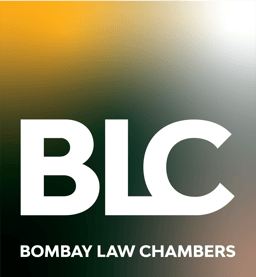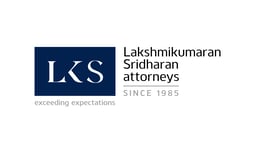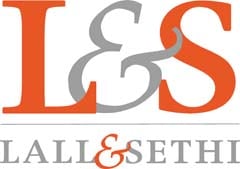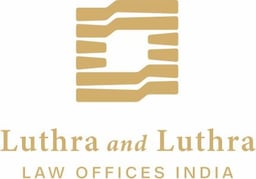
India
Directory


Agarwal Law Associates

Agrud Partners

Ahlawat & Associates

AK & Partners

Anand and Anand

AnantLaw

ANB Legal

AP & Partners

AQUILAW

Argus Partners

Ashlar Law

Ashwathh Legal

ASP Advocates

Aura & Co. (Advocates & Law Consultants)

AZB & Partners

Beruar & Beruar

Bharucha & Partners

BMR Legal

Bombay Law Chambers

BRUS CHAMBERS, Advocates & Solicitors

Chadha & Chadha IP

Chadha & Co

Chandhiok & Mahajan, Advocates and Solicitors

Clavius Legal

Clifford Chance

Clove Legal

CSL Chambers

Cyril Amarchand Mangaldas

Dentons Link Legal

Desai & Diwanji

Dhaval Vussonji & Partners

Dhir & Dhir Associates

DMD Advocates

DSK Legal

Dua Associates

Economic Laws Practice

Fidus Law Chambers

FKNK Law Firm

Fox Mandal & Associates

Gagrats

Ganesan Manuraj LLP

Goswami & Nigam LLP

Gravitas Legal

Hammurabi & Solomon Partners

Hogan Lovells Lee & Lee

I.B. Law Associates

I.L.A. Pasrich & Company

India Juris

Indialaw LLP

Jones Day

JSA Advocates & Solicitors

Juris Arena

Juris Corp

Juris Legal

Juris Prime Law Services

Khaitan & Co.

KIAA, LLP

King & Spalding LLP

King, Stubb & Kasiva

Kirkland & Ellis

KNM & Partners, Law Offices

Kochhar & Co.

Krishnamurthy and Co

Lakshmikumaran & Sridharan

Lall & Sethi

Law Offices of Rony Oommen John

Law Point

Legacy Law Offices

LEGALLANDS LLP

LexCounsel

Luthra and Luthra Law Offices India

Mahendra Bhavsar & Co

Maheshwari & Co. Advocates & Legal Consultants

Majmudar & Partners

Mansukhlal Hiralal & Company

Milbank

MZM Legal, Advocates & Legal Consultants

Naik Naik & Company

Obhan Mason

P&A Law Offices

Panag, Babu & Sarangi

Phoenix Legal

Pioneer Legal

Poovayya & Co

R. K. Dewan & Co.

Remfry & Sagar

Renata Partners

RNA Technology and IP Attorneys

RNClegal

Royzz & Co. Attorneys at Law

RPV Legal

S.S. Rana & Co.

S&A Law Offices

Saga Legal

Sagus Legal

Samagra Law

Saraf and Partners

Sarthak Advocates & Solicitors

SD Partners

Shardul Amarchand Mangaldas & Co

Sidley Austin LLP

Sim and San

Singularity Legal

SNG & PARTNERS

Solomon & Co. Advocates & Solicitors

Spice Route Legal

Stratage Law

Talwar Thakore & Associates

Titus & Co

TLH, Advocates & Solicitors

TMT Law Practice

Trilegal

Tuli & Co

UJ LEGAL LLP

White & Case LLP

WongPartnership LLP
Firms in the Spotlight

BRUS CHAMBERS, Advocates & Solicitors
Dr. Shrikant Hathi listed by Legal 500 in the ‘Hall of Fame’ and Ms. Binita Hathi ranked by Legal 500 as ‘Leading Individual’ in India for shipping work co-heads the shipping and shipping litigation a

AnantLaw
Our team always puts our clients first. We bring fresh ideas, innovative solutions and perspectives to all our engagements. Our relentless focus on forging bold ideas helps our clients achieve superio

BRUS CHAMBERS, Advocates & Solicitors
Brus Chambers, with strong arbitration practice and result oriented, is considered as a beacon of excellence in international and domestic commercial arbitration more particularly focused on infrastru

Royzz & Co. Attorneys at Law
In 2016 Royzz & Co restructured to become a full-service law firm. It is headed by its founder and managing partner, Ms Mahua Roy Chowdhury. The restructuring has resulted in the expansion of its prac
News & Developments
ViewRestructuring and Insolvency
RECOGNITION OF CROSS BORDER INSOLVENCY IN INDIA
In India, the framework for insolvency and bankruptcy resolution is primarily governed by the Insolvency and Bankruptcy Code, 2016 (“the Code” or “IBC”). The said Code is a comprehensive legislation aimed at consolidating and amending existing laws relating to insolvency resolution of companies, limited liability entities, partnerships, and individuals.
The Code introduced a paradigm shift from a debtor-in-possession to a creditor-in-control model. Its objective is to ensure timely resolution of distressed assets, promote entrepreneurship, and balance the interests of all stakeholders. It provides a time bound resolution process wherein the management of the debtor company is transferred to an insolvency professional under the supervision of the National Company Law Tribunal (“NCLT”).
However, as Indian corporations increasingly expand across borders and foreign investors acquire stakes in Indian entities, the challenge of dealing with cross border insolvency, where the debtor or its assets and creditors are situated in multiple jurisdictions, has become increasingly significant.
Indian Courts, on several occasions, declined to recognize foreign insolvency proceedings due to the absence of a formal cross border insolvency framework. For instance in the case of Mahmood Hussain Khan v. Madam Canisia Ceizar[1], the Telangana High Court acknowledged the existence of foreign insolvency proceedings but refrained from granting relief, highlighting the lack of a statutory mechanism for such recognition.
The Hon’ble Court recognized aspects of Swiss insolvency proceedings concerning the sale of Indian properties. It was held that such foreign proceedings could be given effect in India for specific matters, including property sales, thereby providing a legal basis for cross border cooperation.
Similarly, in October 2024, the Calcutta High Court in Glas Trust Corporation v. BYJU Raveendran & Ors.[2], the Hon’ble Court held that without a comprehensive cross-border insolvency framework Indian courts do not recognize or enforce moratorium orders to stay ongoing countries, such as the US, and thus, are not obligated to stay ongoing suits due to such foreign proceedings.
These decisions illustrate the cautious approach adopted by Indian courts in the absence of a statutory mechanism, highlighting the need for a comprehensive legal framework.
At present, India does not have a fully developed legal framework to address cross border insolvency issues comprehensively. Nevertheless, Section 234 and 235 of the IBC provide a limited mechanism for international cooperation.
Section 234 empowers the Central Government to enter into bilateral agreements with foreign countries to enforce the provisions of the IBC in relation to assets or debtors situated outside India.
Section 235 allows the resolution professional or liquidator to make an application to the Hon’ble NCLT seeking a letter of request to a foreign court or authority for evidence taking or action relating to the assets of the debtor located abroad.
Despite their inclusion, these provisions remain largely unimplemented due to the absence of bilateral treaties or reciprocal arrangements. Consequently, Indian courts rely on judicial comity and cooperation in cross border cases. Notwithstanding these limitations, Indian courts and foreign jurisdictions have begun to recognize cross border insolvency proceedings.
In the landmark case of Jet Airways (India) Limited (Offshore Regional Hub) v. State Bank of India & Anr.[3], the Hon’ble National Company Law Appellate Tribunal answered whether separate proceeding(s) in corporate insolvency resolution process against common debtor can proceed in two different countries, one having no territorial jurisdiction over the other. The Hon’ble tribunal recognized parallel insolvency proceedings in the Netherlands and permitted the Dutch administrator to participate in the Committee of Creditor’s meetings as an observer. This decision, though not rooted in explicit statutory authority, marked a significant step towards acknowledging cross border cooperation.
Another significant milestone in India’s cross border insolvency jurisprudence was when the US Bankruptcy Code for the District of Delaware recognized the insolvency proceedings of SBI v. SEL Manufacturing Company Limited[4] pending before the NCLT, Chandigarh Bench, as a foreign main proceeding under Section 1502(40) of the US Bankruptcy Code, marking the first recognition of the IBC in the US. The Hon’ble Court held that recognition did not violate US public policy and granted the foreign representatives and foreign debtor reliefs under Section 1520, protecting assets and creditor’s interest. This recognition facilitates cross border asset recovery, particularly for Indian banks’s NPAs, while ensuring relief aligns with US bankruptcy principles.
In a recent case of the Hon’ble Delhi High Court on Toshiaki Aiba as Bankruptcy Trustee v. Vipan Kumar Sharma[5], the High Court has considered India’s Jurisdiction to enforce foreign bankruptcy and insolvency orders.
The Hon’ble Court held that “it is contended on behalf of the defendants that Japan is not a reciprocating territory in respect of Section 44A of the CPC, so there cannot be any proceedings for execution of the decree of a Japanese Court. 18. In the opinion of this Court and as stated above, by the way of the present suit, the plaintiff is not seeking execution of the decree of the Japanese Court. The suit has been filed to administer the suit properties of the bankrupt defendant no. 1 towards realization of monies. Therefore, Section 44A of the CPC would have no application. In this regard, reference may be made to Sections 13 and 14 of the CPC, which deal with foreign judgments”
Further, In Re Compuage Infocom Ltd.[6], the Singapore High Court has recognized the Corporate Insolvency Resolution Process (“CIRP”) of an Indian company under the IBC as a foreign main proceeding. The Hon’ble Court acknowledged the Indian Resolution Professional as a foreign representative and treated the NCLT as the foreign court, allowing the Indian insolvency proceedings to be given effect in Singapore. This landmark decision illustrates that Indian insolvency proceedings can obtain recognition abroad, facilitating cross border administration of assets and providing a framework for cooperation between jurisdictions in insolvency matters.
India’s globalization and the growing participation of creditors from across the globe in Indian insolvency cases highlights the need of cross border insolvency framework. Hence, taking in account of such matters, the Insolvency Law Committee (“Committee”), on October 2018, recommended the adoption of a dedicated framework based on the UNCITRAL Model Law (“Model Law”) on Cross Border Insolvency, 1997[7], known as Draft Law on cross border insolvency[8].
DRAFT LAW
The Committee, in its report, recommended adoption of the Model Law with certain modifications. The proposed draft is also called as “draft Part Z” (hereinafter referred to as “Draft Law” or “Part Z”). It is pertinent to note that certain amendments in the provisions of the IBC are necessary to include draft Part Z in the Code. For instance, section 234 and 235 may be amended to exclude corporate debtors; Section 60 may be amended to allow transfer of domestic proceedings to the Adjudicating Authority notified under the draft Part Z in relevant matters, the inspection and investigating powers of the Insolvency and Bankruptcy Board of India (hereinafter referred to as “IBBI”) may need to be amended to include a suitable mechanism for investigation and adjudication of penalties against foreign representatives, section 196 may be amended to include regulation of foreign representatives within the functions of the IBBI; and additional rule and regulation making power will need to be incorporated in sections 239 and 240, respectively; the 11th Schedule may be amended based on the decision to amend 15 section 375(3)(b) of the Companies Act (hereinafter referred to as “2013 Act”), lastly, preamble to the Code may be amended to reflect inclusion of cross-border insolvency under the Code. Suitable amendments to subordinate legislations under the Code may also be required.
OBJECTIVES OF DRAFT PART Z
The objectives specified in the report provided by the Committee mirror the core principles of the Model Law but are contextualized for India’s institutional environment.
Recognition of Foreign Insolvency Proceedings – To enable foreign court orders or foreign insolvency administrators to seek recognition in India.
Relief and Assistance – To grant domestic relief on recognition, for instance moratorium, asset control to facilitate coordination
Access and Participation – To allow foreign representatives and creditors direct access, subject to controls, to Indian courts and proceedings.
Cooperation & Communication – To promote direct or guided collaboration between Indian courts, foreign courts, and insolvency professionals.
Coordination of Concurrent Proceedings – To ensure that insolvency matters are harmonized to avoid conflicts, duplication, and inequitable outcomes.
Protection of Domestic Public Policy – To preserve a “public policy” exception to deny recognition or relief that is manifestly contrary to Indian policy.
CONCLUSION
The Insolvency and Bankruptcy Code, 2016 (“IBC”) has transformed India’s insolvency landscape, introducing a time-bound, creditor-driven framework to resolve corporate, partnership, and individual insolvencies. By transferring control from debtors to insolvency professionals under the supervision of the NCLT, the Code ensures efficient management of distressed assets while balancing stakeholder interests.
With the globalization of Indian businesses and the involvement of foreign creditors, cross-border insolvency has emerged as a critical challenge. Indian courts have historically taken a cautious approach, sometimes recognizing foreign proceedings partially, as in Mahmood Hussain Khan v. Madam Canisia Ceizar, or declining recognition altogether, as seen in Glas Trust Corporation v. BYJU Raveendran & Ors.
However, positive developments as seen in landmark cases like Jet Airways v. State Bank of India, facilitating parallel proceedings in the Netherlands, and SBI v. SEL Manufacturing Co. Ltd. which included recognition of IBC under the U.S. Bankruptcy Code, demonstrate growing judicial willingness to facilitate cross-border cooperation and asset recovery.
Cases like Toshiaki Aiba v. Vipan Kumar Sharma and Re Compuage Infocom Ltd. further underscore that Indian insolvency proceedings are increasingly recognized abroad.
To address the absence of a formal cross-border framework, the Insolvency Law Committee recommended the adoption of a dedicated regime based on the UNCITRAL Model Law (“Draft Part Z”).
Its objectives include recognition of foreign proceedings, provision of relief such as moratoriums, participation rights for foreign representatives, coordination of concurrent proceedings, and protection of domestic public policy.
Once operationalized, Draft Part Z promises to align India with international standards, facilitate efficient cross-border asset recovery, and strengthen India as a predictable jurisdiction for global commerce.
In essence, while challenges remain, the combination of judicial developments and a prospective statutory framework positions India on a path toward a robust and globally compatible cross-border insolvency regime.
[1] CCCA No.47 of 2021
[2] Civil Appeal No. 9986 of 2024
[3] Company Appeal (AT) (Insolvency) No. 707 of 2019
[4] CP (IB) No. 114/Chd/Pb/2017, National Company Law Tribunal, Chandigarh.
[5] 2022 SCC OnLine Del 1260
[6] (2025) SGHC 49
[7] https://uncitral.un.org/sites/uncitral.un.org/files/media-documents/uncitral/en/insolvency-e.pdf
[8] https://ibbi.gov.in/uploads/resources/Report_on_Cross%20Border_Insolvency.pdf
Authored by Ms. Jyotsna Chaturvedi, Head – Corporate Practice and Ms. Navya Saxena, Associate
Maheshwari & Co. Advocates & Legal Consultants - February 26 2026
Press Releases
Saraf and Partners advised Larsen &Toubro Power Development Limited (L&T Power), a wholly owned subsidiary of Larsen and Toubro (L&T) on the landmark divestment of its 1400 MW (2X700 MW) thermal power asset (Nabha Power Limited) in Punjab to Torrent Power Limited.
Saraf and Partner's Projects, Infrastructure and Energy team acted as the counsel for Larsen & Toubro Power Development Limited (L&T Power), a wholly owned subsidiary of Larsen & Toubro (L&T), on the divestment of its 1400 MW thermal power asset in Punjab, a supercritical coal based plant with twin 700 MW units (Nabha Power Plant), for the enterprise value of INR 6,889 Crores to Torrent Power Limited. The Nabha Power Plant currently has a long-term power purchase agreement with Punjab State Power Corporation Limited.
The transaction involves sale of 100% equity and convertible instruments of Nabha Power Limited (NPL) by L&T Power to Torrent Power Limited subject to regulatory approvals. Saraf and Partners advised L&T Power in structuring the transaction and drafting, reviewing, finalisation and execution of securities purchase agreement.
The divestment of NPL aligns with L&T’s strategic objective of unlocking value to strengthen its robust core businesses. This move positions L&T to create long-term value for its stakeholders, business partners, shareholders and employees.
The transaction team for L&T Power was led by Avirup Nag (Partner) and Ankit Sahoo (Partner Designate) along with Asima Ghosh (Senior Associate), Ashwini Panwar ( Associate) and Paritosh Bisen (Associate).
Saraf and Partners - February 20 2026
Corporate
AFTER TIGER GLOBAL: THE JUDGMENT THAT COULD REWRITE INDIA’S OFFSHORE INVESTMENT PLAYBOOK
I. WHAT ACTUALLY HAPPENED: THE FLIPKART EXIT
On 15 January 2026, the Supreme Court of India (“SC”) delivered a judgment that materially alters how offshore investment structures into India are evaluated for tax purposes (“Tiger Global Judgement”)[1]. The SC recalibrated the very foundation of treaty entitlement by holding that the possession of a Tax Residency Certificate (“TRC”), by itself, does not secure treaty protection if the structure lacks commercial and economic substance. The ruling arose from Walmart Inc’s approximately USD 16 billion acquisition of Flipkart in 2018, but its implications extend far beyond that transaction. Hitherto, it was sufficient for a non-resident investor to furnish a Tax Residency Certificate as an acceptable proof of residency in the treaty jurisdiction.
The SC held that Tiger Global, a New York based investment fund that invested in Flipkart Singapore through its Mauritius subsidiary, is liable to capital gains tax in India on its 2018 exit from Flipkart Singapore. The tax exposure potentially exceeds USD 1 billion, making this one of the most consequential international tax rulings in India’s history since Vodafone[2]. But its real significance lies not in its numbers, but in the doctrinal shift it introduces.
At the centre of the dispute were three Mauritius-based investment vehicles, namely Tiger Global International II, III & IV Holdings. These entities were part of the Tiger Global group’s offshore investment platform. Between 2011 and 2015, they invested in a Singapore intermediate holding company, namely Flipkart Singapore Private Limited (“Flipkart Singapore”) that held shares in Flipkart India Private Limited (“Flipkart India”). Although shares transferred in the Walmart transaction were those of Flipkart Singapore, however, the value of the shares of Flipkart Singapore was derived substantially from assets located in India i.e. shares of Flipkart India, making the transaction an “indirect transfer” of assets held in India under Indian tax law.
Despite holding a valid TRC and a Category 1 Global Business Licence from Mauritius, Tiger Global’s entities were denied nil withholding tax certificates under the provisions of the Income-tax Act, 1961[3] (“IT Act”) by the tax department. Tiger Global claimed exemption under the India – Mauritius Double Taxation Avoidance Agreement (“DTAA”)[4] on the basis of the “grandfathering” protection, arguing that the shares had been acquired before 1 April 2017 and should therefore remain outside India’s capital gains tax net.
The dispute moved through all three adjudicatory levels, and at each stage reflected a fundamentally different view of treaty protection.
i. Authority for Advance Ruling (“AAR”) (2020): The AAR rejected the application, holding that the Mauritius entities were mere conduits and the structure was prima facie tax avoidance.
ii. Delhi High Court (“DHC”) (2024): The DHC reversed the AAR ruling, emphasising the primacy and sufficiency of the TRC and allowing grandfathering protection.
iii. Supreme Court (2026): The SC overturned the High Court decision, holding that the treaty is meant for direct investments in India, fundamentally recalibrating the importance of TRCs, General Anti-Avoidance Regulations (“GAAR”) and denying treaty protection to indirect transfers.
II. THE FIVE PILLARS OF THE SUPREME COURT'S REASONING
The Tiger Global Judgment establishes five clear rules that will now govern how offshore investment structures into India will be assessed. Together, they move treaty eligibility away from documentation and towards economic reality, control, and governance.
A. India Can Tax What Is Economically “Indian”, Even If It Is Legally Offshore
The SC reaffirmed that India can tax transactions where the economic value is rooted in India, even if the legal form of the transaction is offshore. If the underlying value sits in India, shifting ownership through a foreign company i.e. indirect transfers, does not take the transaction outside India’s tax net. This converts indirect transfers from a technical tax issue into a direct structuring risk.
B. If Avoidance Is Prima Facie, AAR Will Shut the Door at the Threshold
The SC made it clear that if a transaction appears, at first glance, to be designed for tax avoidance, the AAR after providing the applicant an opportunity of being heard, is bound to refuse a ruling and not examine the application on its merits in accordance with the threshold bar to maintainability of such application.[5] This weakens the traditional reliance on advance rulings as a source of front-loaded certainty.
C. A TRC Is No Longer a Shield – It Is Only the Starting Point
The SC held that a TRC only establishes formal residence and is merely an eligibility condition for treaty benefit[6], not sufficient evidence of residency. It does not prove that the entity is commercially autonomous, independently managed, or substantively operating from that jurisdiction. If control, decision-making and financial authority sit elsewhere, treaty benefits can be denied even in the presence of a valid TRC.
For decades, the market treated a TRC as sufficient evidence of treaty entitlement. This judgment decisively reverses that understanding. On facts, the SC focused on who truly controlled the investment. It noted that above certain internal thresholds, any key decisions, financial authority and exit approvals were exercised outside Mauritius, predominantly from the United States, and the Mauritian entities lacked genuine autonomy making them operationally passive.
D. Grandfathering Is No Longer Absolute: GAAR Can Still Bite
The SC has dismantled the belief that pre-2017 investments are automatically immune from GAAR. By harmoniously interpreting the provisions of the IT Act[7], the SC held that if a tax benefit arises after 1 April 2017, GAAR can apply even if the investment was made earlier, provided the aggregate tax benefit exceeds the prescribed threshold. Grandfathering now protects timing, not structure. If the structure is a conduit, the acquisition date becomes irrelevant.
E. Indirect Transfers Get No Treaty Comfort at All
The SC drew a sharp line between direct and indirect transfers. It held that grandfathering and limitation-of-benefits (“LoB”) protection[8] apply only to direct transfers of Indian shares. Indirect transfers fall outside treaty protection altogether. This is critical for PE and VC exits, which more often than not, operate through multi-layered offshore holding structures.
III. WHAT BREAKS IMMEDIATELY: WHY EXISTING STRUCTURES ARE NOW EXPOSED
The judgment converts treaty protection from a structural assumption into a factual test. Existing offshore holding structures may now be exposed unless they can demonstrate real substance, real control, and real commercial purpose.
A. Treaty Shopping Is No Longer Structural – It Is Evidentiary
Incorporation in Mauritius or Singapore and possession of a TRC is no longer sufficient. Treaty entitlement now mostly depends on whether the entity can demonstrate genuine substance, independent control, and a commercial purpose beyond tax efficiency. Offshore holding entities that exist primarily as routing vehicles now carry significant risk as structures without autonomous governance, operational capability, and financial authority will struggle to survive scrutiny.
Funds may need to reassess exit models, withholding assumptions, indemnity structures and tax gross-up mechanisms. Treaty uncertainty may now be priced into transaction documents rather than treated as a remote contingency. Late-stage exits and secondary transactions will have to take into account higher tax risk through valuation discounts or contractual risk allocation.
B. Legacy PE/VC and Intermediate Holding Structures Could Carry Real Exit Tax Risk
For funds exiting legacy pre-2017 investments, the risk profile has materially changed. The assumption that such investments are insulated from Indian capital gains tax is no longer reliable. Capital gains exposure will now have to be modelled into exit economics, alongside litigation risk and potential delays in capital repatriation. The Tiger Global Judgment does not block investment. It changes how risk is priced. Structures that lack substance will face slower exits, heavier documentation burdens, and reduced net outcomes. Escrow arrangements, tax holdbacks, and expanded indemnities are likely to become standard features of exit documentation. Term sheets will also reflect this shift. Tax risk allocation will move earlier into negotiations and becoming a valuation variable rather than a closing-stage compliance issue.
IV. HOW THIS CHANGES THE MARKET: VALUATIONS, EXITS AND CAPITAL FLOW
Tiger Global Judgement converts tax uncertainty into a pricing variable. Capital could become more expensive, exits may become slower, and valuations could become more conservative wherever treaty protection is not structurally defensible.
A. Capital Becomes More Expensive When Tax Certainty Disappears
When tax outcomes become uncertain, capital tends to become more expensive. Investors either demand higher returns to compensate for risk or reduce exposure altogether. India has already been experiencing a tightening of growth-stage capital as compared to past years. In such an environment, any additional uncertainty around exit taxation may directly affect the access to additional capital. Investors tend to discount future returns more aggressively when exit economics are unclear, particularly in late-stage and secondary transactions. Reduced certainty around offshore exits discourages long-duration capital. Growth-stage funding, which depends most heavily on predictable exit outcomes, is therefore the first to be impacted.
B. Valuations Could Fall Where Exit Tax Risk Cannot Be Priced Out
The judgment re-introduces the treaty risk into valuation models. Until now, the “India premium” reflected regulatory complexity and currency volatility. It will now also include uncertainty around treaty eligibility and exit taxation. Tax insurance and indemnity pricing could harden. Structures that cannot demonstrate substance may face higher premiums or reduced coverage. In M&A transactions involving Mauritius or Singapore holding structures, counterparties will tend to demand deeper due diligence on governance, control architecture, and evaluate GAAR exposure.
C. FPIs and Derivatives Desks Face a Silent Risk Reset
Although the case arose from a private equity exit, its reasoning extends to Foreign Portfolio Investors (“FPI”) using offshore treaty structures. The SC’s focus on control and commercial purpose applies equally to FPIs trading Indian Futures & Options (“F&O”) entities. If strategic decisions and risk management occur outside the treaty jurisdiction, treaty benefits could become vulnerable. That exposure may also have to be factored into risk and return calculations.
V. THE NEW PLAYBOOK: HOW FUNDS AND INVESTORS MUST NOW BUILD, HOLD AND EXIT INDIA INVESTMENTS
After the Tiger Global Judgement, structuring is no longer only a tax exercise. It is a governance, control and credibility exercise. Funds that treat substance as design, not compliance, will preserve certainty. Those that treat it as form will not.
A. Governance Documentation and Board Oversight
Governance will now become a tax variable. How decisions are taken, who takes them, and where authority truly sits will now determine whether treaty benefits survive as opposed to merely where routine execution is carried out. Boards and investment committees must now treat control architecture as part of tax risk management, not merely corporate hygiene. Governance structure will now be as important as tax structuring. Decision approval rights, banking mandates, veto thresholds and delegation frameworks will have to be examined to determine whether an offshore entity genuinely governs or merely records decisions taken elsewhere.
B. Control Must Sit Where You Claim Residence
To satisfy the "head and brain test", control must reside where residence is claimed. Funds must demonstrate that strategic, financial, and exit decisions are actually made within the treaty jurisdiction. Board composition, approval authority, financial control mechanisms, functional office premises, dedicated local staff, and IT infrastructure all evidence actual control.
C. Spending, People and Infrastructure Will Decide Treaty Survival
Treaty survival will now be determined by operational reality and the presence of commercial substance i.e. people, spending, infrastructure and authority. Funds will have to demonstrate real operational presence, decision-capable directors, functioning office infrastructure, locally managed bank accounts, and employees with financial and investment competence. Documentation will now have to evidence deliberation, not ratification. Board minutes will have to show real debate, not formal approval of externally decided outcomes. The burden now squarely lies on the investor to prove that the offshore entity is commercially autonomous.
D. Every Exit Needs a GAAR Readiness Review
GAAR readiness is one of the key factors in determining exit success. Documentation could make or break treaty entitlement. Legacy structures, even pre-2017, should not assume safety. Groups with legacy offshore structures and future liquidity events will need pre-exit GAAR and treaty reviews. Each financing round should be treated as a structural audit point. Grandfathering reduces exposure only where structure integrity exists, for it does not protect defective architecture.
E. GIFT City: From Alternative to Strategic Default
GIFT City offers a structural solution, not a workaround. Being a domestic onshore alternative, it replaces treaty dependence with statutory certainty by eliminating treaty risk, reducing GAAR exposure, and anchoring tax benefits in domestic law. For funds willing to locate substance within India, GIFT City is the clearest path to stability. Mauritius and GIFT City serve the same objective i.e. attracting global capital through certainty, the key difference being that GIFT City embeds certainty in statute, not treaty interpretation.
VI. CONCLUSION: INDIA IS RAISING THE STANDARD, NOT CLOSING THE DOOR
This judgment is not a rejection of foreign capital. It is a recalibration of how India expects capital to be structured. The SC has drawn a clear line between legitimate planning and artificial tax engineering. What it demands is credibility, real governance, real control and real economic presence. Structures built on documentation alone will not survive. Structures built on substance will.
Legally, the ruling is jurisdictional, not determinative. Revenue must still satisfy statutory thresholds, establish impermissible avoidance, and justify attribution and penalties. Defensive space remains but only for investors whose structures reflect commercial reality.
For dealmakers, treaty eligibility is no longer a technical assumption verified at closing. It is a factual condition to be designed from inception and maintained throughout the investment lifecycle. Governance architecture, decision-making authority, and documentation discipline are now core components of tax risk management.
The choice is no longer between aggressive and conservative structuring. It is between credible and vulnerable structuring. Those who adapt will find India still offers scale, depth, and opportunity. Those who rely on form without substance will find the old playbook obsolete. The Tiger Global Judgement does not signal retreat. It signals maturity and a market confident enough to welcome global capital but no longer willing to subsidise it through legal fiction.
[1] The Authority for Advance Rulings (Income Tax) & Ors. v. Tiger Global International II Holdings, 2026 INSC 60 available at < https://api.sci.gov.in/supremecourt/2025/1251/1251_2025_7_1501_67552_Judgement_15-Jan-2026.pdf >
[2] Vodafone International Holdings BV v. Union of India, 2012 (6) SCC 757
[3] Section 197, Income-tax Act, 1961
[4] Agreement For Avoidable Of Double Taxation And Prevention Of Fiscal Evasion With Mauritius, (as amended from time to time).
[5] Proviso (iii) to Section 245R(2), Income-tax Act, 1961
[6] Section 90(4), Income-tax Act, 1961
[7] Rule 10U(2) r.w Chapter X-A, Income-tax Act, 1961
[8] Article 13(3A), Agreement For Avoidable Of Double Taxation And Prevention Of Fiscal Evasion With Mauritius, 1983 (as amended from time to time).
Authored by: Sujoy Bhatia and Vedangshri Vijay
Chandhiok & Mahajan, Advocates and Solicitors - February 19 2026
Press Releases
Argus Partners Advises Claypond Capital on its investment in Easy Home
Argus Partners is pleased to announce that it has advised Claypond Capital on its investment in Easy Home, a technology-based home loans platform focused on faster approvals and streamlined documentation.
The investment formed part of Easy Home’s USD 30 million Series C fundraise, which was led by Investcorp and also saw participation from SMBC Asia Fund, apart from Claypond Capital.
Easy Home intends to deploy the proceeds to expand into new markets, strengthen its technology platform, and scale its distribution network. The company also plans to grow its loan book and deepen its presence beyond major urban centres, in line with rising demand for affordable housing finance.
The team at Argus Partners advising Claypond Capital consisted of Pallavi Kanakagiri (Partner) and Shubham Tiwary (Associate).
Read more at: Economic Times, VCCircle, Entrackr.
Argus Partners - February 12 2026
